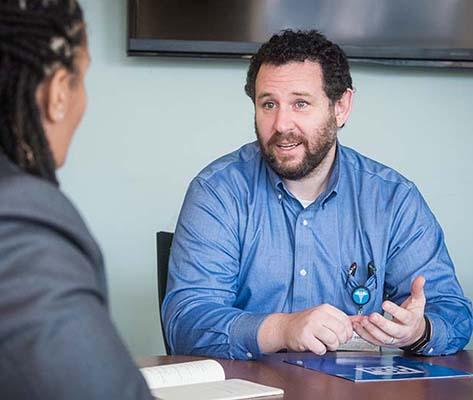
Duke faculty members Gary Maslow, MD, who is both a child psychiatrist and a pediatrician, and Nicole Heilbron, PhD, who is a child psychologist, serve as principal investigators of NC-PAL, or the North Carolina Psychiatric Access Line; the pair also co-direct the Division of Child and Family Health and Community Psychiatry in the Duke Department of Psychiatry and Behavioral Sciences.
NC-PAL’s phone line for providers offers free, same-day phone consultation with a child psychiatrist or perinatal psychiatrist for questions relating to mental or behavioral health diagnoses, medications, and side effects. “It’s just-in-time help,” Maslow said. NC-PAL’s behavioral health can also suggest resources, including books, websites, or virtual trainings that providers can recommend to their patients and families.
Maslow believes a long-term solution will include training more child psychiatrists and other specialists, and incentivizing them to work in underserved areas. But until then, families will continue to rely on pediatricians and family doctors for help, and Maslow wants to help those providers build their capacity to respond.
When a physician, PA, or nurse practitioner calls NC-PAL, they not only get an answer to a question about a current patient’s care, they also gain knowledge they can use with future patients. “We teach them,” Maslow said, “and then next time, they are able to do it on their own.”
The continuing education program, REACH PPP, offers support in addition to content. Many primary care providers don’t feel they have the training to treat mental health or behavioral issues, and they don’t always have nearby colleagues with whom to discuss the facts or the challenges. “REACH training is affecting the problem of isolation by supporting them,” Maslow said. “You see the changes practices go through when they have that support. There are practices that prior to being involved were not treating adolescent depression at all and now they are.”